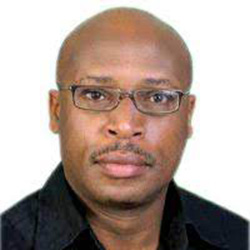The US has set the global pace after its media regulator, Federal Communications Commission (FCC), approved net neutrality rules making the internet a public utility. This gives the web official recognition as critical infrastructure, such as highways or water, making it an entitlement in the US.

The US has set the global pace after its media regulator, Federal Communications Commission (FCC), approved net neutrality rules making the internet a public utility. This gives the web official recognition as critical infrastructure, such as highways or water, making it an entitlement in the US.
Sometime in late December last year there was raging debate (see "We deserve affordable Internet”) about the cost at which Internet should be accessed.
The argument by the major US Internet service providers was that Internet should be split into two categories: One for those who can afford high-speed network - "paid prioritisation” - and the other for those without deep pockets and therefore cannot afford the fast lane.
Core to the argument was that because of their big investments in telecommunication infrastructure used to carry content to the end-users, content providers should pay more for the service; that data-heavy video, such as Google’s YouTube, puts extra strain on their telecommunication links when accessed.
Google, like other major content providers, disagree saying they are already paying for their bandwidth access, and should not therefore be discriminated against by paying more or engaging in paid prioritization, thereby penalizing the teeming millions of users of the service, merely because of the nature of their data.
By arguing for split categories of Internet according to one’s pocket, it would be like saying that those who use "moto” (motorcycles) have less right to Rwandan roads than those who drive the four-wheel fuel guzzlers that ply the smooth highways.
But as a public utility, taking the example of the right to access to water as observed in the above mentioned article, the Internet has become crucial to life as we know it in our everyday activities – from communication to commerce and access to services.
Therefore, like tap water, if you hike the price beyond a certain minimum cost affordable to all, it means that the cost may be too high for the poor among us to access it. The FCC approval of net neutrality has set the parameters.
That’s why we should take note: Access to the Internet should not be discriminatory on the basis of type, destination, origin or any other criteria.
For this reason, one may also take note of what Mark Zuckerberg, Facebook founder, has been up to. Some two years ago, he set up the non-profit group, Internet.org, in collaboration with major mobile equipment industry players to make basic Internet services available to the nearly two-thirds of the world’s population who are not yet connected.
It is reported that top executives from Bharti Airtel Ltd and Telenor, two big operators in Asia and Africa, are considering joining the Zuckerberg effort. With Airtel’s considerable footprint in our region, they should be encouraged.
But we should not wait for "the Good Samaritans.” Our national parliaments, including the East African Legislative Assembly, should already be having the Internet access issues on their agenda. They may, for now, be settled in the US, but the debate rages elsewhere. The European parliament, for instance, is in the midst of negotiations with member states and network operators over final net neutrality rules, which are expected to be published soon.
The likelihood is that EU parliament will be for the open Internet, such as ruled by the FCC. Like with the invention of the wheel, the Internet belongs to nobody and to everybody. It is also certain that the FCC favour of net neutrality will have a decisive impact on the future of the Internet.
We in the EAC have no choice but to think about it, and anticipate all eventualities with relevant, people friendly policies. And, to me, people friendly policies mean the open Internet.
The writer is commentator on local and regional issues.


